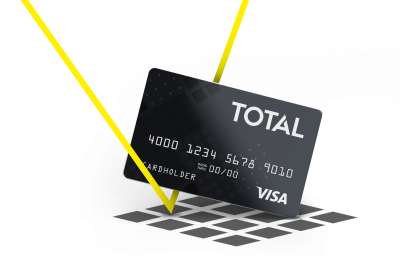Have you ever applied for a credit card and received a decision – whether or not you were approved – and wondered how exactly a credit card company knows if you should have a card?
The answer isn’t simple and it’s different for every credit card program. In fact, the way credit card companies make this decision has a whole science to it called Credit/Risk Assessment. The whole point of this science is to look at certain legally allowed factors about your credit history and then to decide how much of a risk it is for a credit card company to have you as a customer.
Depending on what the data says, you may be offered a higher or lower credit limit, a better or worse interest rate, or you may or may not be approved as a customer.
All that said, there are a ton of data points that help credit card companies decide that help credit card companies decide whether or not to approve someone for a credit card.
Here’s just a few!

Credit Score
Credit score is the one we’re all most familiar with. The most widely used score is called a FICO score, but even a FICO score has variations in how it’s calculated. A common way that scores are calculated looks like this:
- How long you’ve had credit (15%)
- Payment history (35%)
- Types of accounts (10%)
- The amount of credit you’re using vs how much credit you have available (30%)
- Number of accounts (10%)
All your history about those things is reported to the three main credit bureaus, Equifax, Experian, and TransUnion. When you apply for a credit card, you’re more likely to get approved if you have a better credit score.
Keep in mind, though, that your credit score isn’t the only factor that goes into making a decision!

Income and Credit Utilization Rate
Credit card companies may ask you to disclose your income as part of applying for a credit card. They can then compare your income to the overall amount of money you have borrowed, also known as your debt-to-income ratio.
The point of this? To make sure they’re not giving you more credit than you can reasonably pay off. There are also legal protections to stop lenders from extending too much credit to a person (and keep the person from getting into financial trouble).
When you have a high credit utilization rate, it means that you are using a lot of your available credit. It’s not quite the same thing as the debt-to-income ratio, but to a credit card company, it’s risky for the same reasons.
Delinquencies and Bankruptcies
An account is delinquent when it is past due. Many credit card companies won’t report a late payment to the credit bureaus until you’re more than 30 days late, but lots of late or missed payments shows the borrower to be a risk.
Bankruptcies are legal processes that give a person relief if there’s no way for them to pay back the money owed. There’s lots of reasons a person might file bankruptcy – medical bills, a failed business, divorce, job loss, unexpected emergencies. While it may be necessary to declare bankruptcy in some cases, creditors also pay attention to them. Until you work to rebuild your credit after a bankruptcy, you may find it hard to get a credit card.
When someone wants to get a credit card (or any type of credit), there is usually a credit inquiry (so, someone pulls your credit report to look at the information). There’s two types of credit inquiries that are possible – hard credit inquiries and soft credit inquires.
A soft credit inquiry happens when you’ve been preapproved for something, when you check your own credit, or sometimes even during background checks. A hard inquiry, on the other hand, happens when someone pulls your full credit report. This might happen when you’re applying for a credit card, an auto loan, a mortgage, or a personal loan.
If you have too many hard inquiries in a short amount of time, credit card companies see a person who’s trying very hard to get credit. Sometimes, that’s for a normal reason (like buying a house), but long-time patterns of consumer behavior have shown that people with 6 or more hard pulls in 2 years may be up to 8 times more likely to declare bankruptcy than people with no pulls according to MyFico.com.

Ultimately, each credit card has their own systems for deciding if a person is approved or not, and it just depends on how much risk the lender or credit card company wants to take on. All the things we’ve just listed are ultimately just a way for them to track your previous spending and borrowing behavior, and from there, they have to decide whether or not to give you a credit card.
So, if you want to get a credit card, make sure to monitor your credit score to know which cards are a better match for your credit history!
